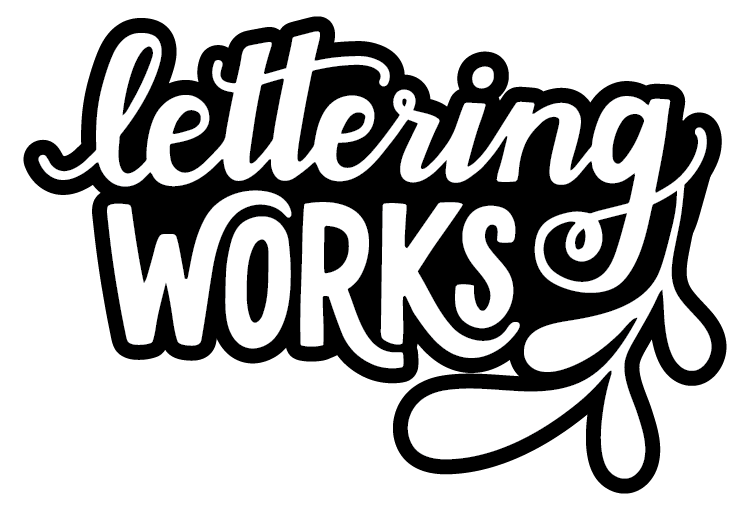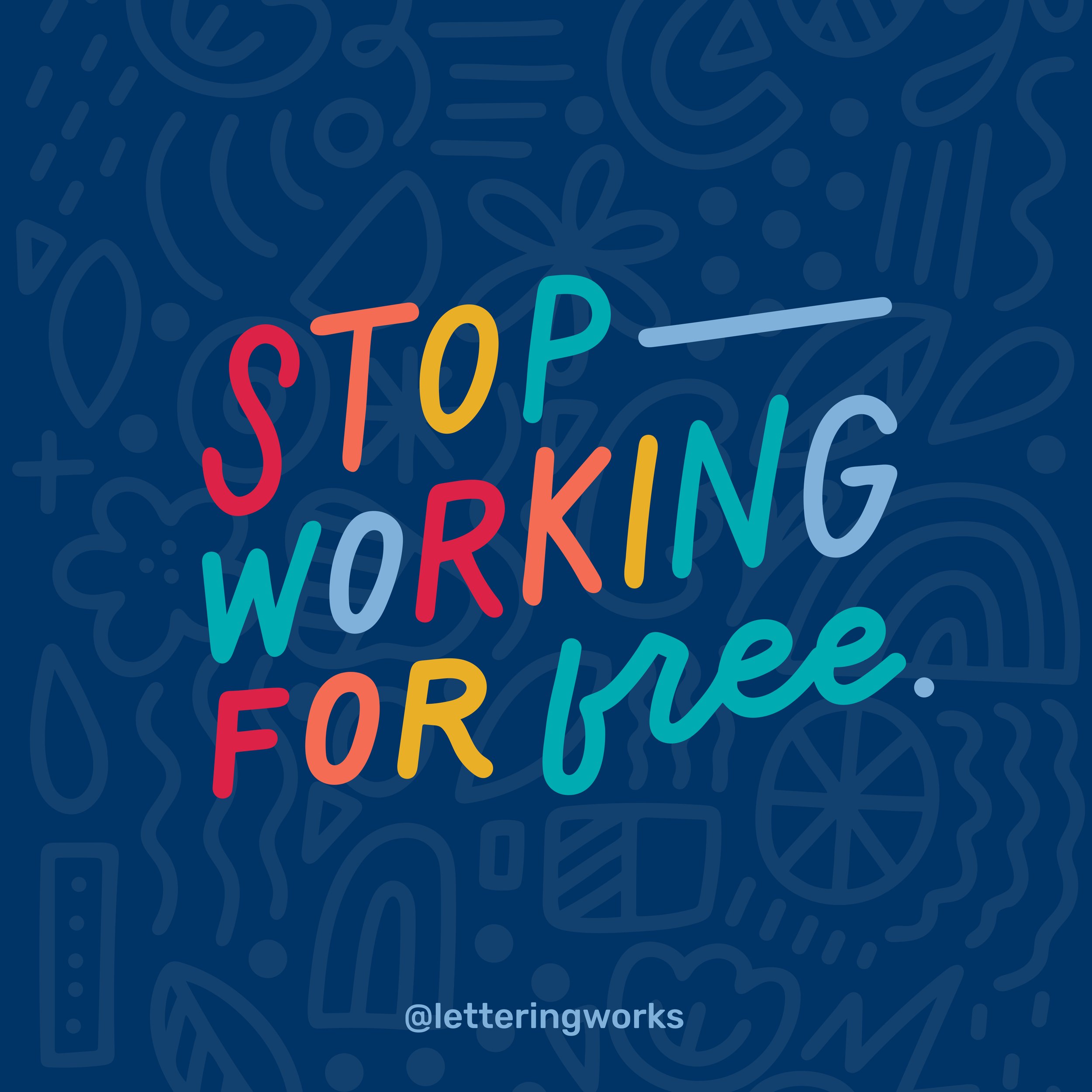Still Doing Free Work As An Artist in 2022? Read This.
Are you an artist? Are you an artist who is ready to ditch working for free? Are you an artist who is tired of undervaluing yourself and ready to charge your worth in 2022? Then you’ve come to the right place. With a new year comes a new opportunity to put new beliefs and boundaries in place.
In this blog post, we’ll cover:
• Why you should stop working for free as an artist
• The exception - when free work is okay
• What to do instead (with a list of 3 boundaries you can put in place today)
• Bonus: How to handle working with friends and family who “want a favor”
Why You Should Stop Working For Free As An Artist
When we don’t charge our worth as artists, we tend to feel undervalued and can even feel unmotivated to pour our energy into our work. It’s hard to deliver our best work when we don’t feel valued and fulfilled. Doing free work can also be an energy and time suck that ultimately takes us away from work that can better serve us and our goals.
One of the biggest issues around doing free work is the lack of official paperwork and agreement between the artist and recipient. This leads to a lack of clear expectations around the work and can easily lead to the project snowballing into much more than was initially anticipated by the artist.
It is essential that you have a contract and discuss expectations before starting any project, especially pro-bono work. Skipping a contract and any sort of onboarding process creates a worse experience overall for both parties, but also sets the artist up for unnecessary stress and potentially awkward conversations later on. If a project isn’t worth the initial setup, it likely isn’t worth your time in general.
If you’ve done any type of client work, you likely already know that scope creep is real. Scope creep refers to changes, continuous or uncontrolled growth in a project’s scope, at any point after the project begins. This can occur when the scope of a project is not properly defined, documented, or controlled. It is generally considered harmful because it likely means you are doing more work than anticipated (and likely receiving no extra compensation).
While scope creep can happen to any project, it becomes even harder to control when there is no defined scope to begin with. You might think you are agreeing to something simple, but it can quickly lead to a much longer laundry list of items.
The real issue is that doing free work can lead to burnout. Burnout is a state of emotional, physical, and mental exhaustion caused by excessive and prolonged stress. It occurs when you feel overwhelmed, emotionally drained, and unable to meet constant demands. Doing free work can add stress that isn’t attached to a reward (such as compensation for your work) so it’s essential to limit or eliminate free work that you’re doing.
The Exception - When Free Work is Okay
Of course there is an exception to the rule of not working for free and that is doing work that supports causes we care about.
Many causes that are so important in our world today are underfunded and desperately need creativity and support from a variety of professionals. Contributing your talents to a cause you care about is a great way to give back and make an impact. And it’s likely that you will feel fulfilled in contributing so that monetary compensation isn’t necessary.
While it’s great to support causes you care about, it’s also important to protect your mental health and work capacity. An alternative solution to consider is to proactively work on your own projects that support a cause you care about and share it with organizers or a relevant organization. While there is a chance that it won’t fit what an organization needs and the work might not get used as it might if you were working with them as a client, you can always share your work as a personal project and further highlight causes you care about to your network and followers.
Shifting to creating passion projects instead of doing pro-bono works means you can do the exact work you dream of and envision while also supporting a cause you care about. If you’d like to learn more about the power of passion projects and how to create your own, you can check out our mini course here.
What To Do Instead (with 3 Boundaries You Can Put in Place Today)
Instead of working for free, aim to find and agree upon ways to exchange mutual value when money is not an option. You can explore trading services, products, advertising or sponsorship credit, or really anything you might mutually agree upon. Get creative with how you are compensated.
As a reminder, you can simply say no to a project that does not have a sufficient budget and should not feel guilty for doing so. In the case where a project or opportunity does seem like a good fit but doesn’t make sense financially, give yourself permission to get creative and remain open to other forms of compensation that help you feel valued and fulfilled.
Creating boundaries around free (and general) work requests can help protect us and our needs. Having boundaries means honoring ourselves as a separate individual with needs and wants that often differ from others. Without healthy boundaries, we might more easily allow others to override our own feelings and desires.
3 boundaries to set for yourself around working for free:
I do not accept free work requests under the premise that they will build my portfolio and/or gain me exposure.
If a project or opportunity is a great fit for me but doesn’t have an appropriate budget, I will consider offering a percentage in trade and/or be open to creating an unconventional agreement that is mutually beneficial.
I do not offer discounts because I believe in the value of my work and strive to work with those who truly value what I have to offer.
When explaining these boundaries (or personal policies) to potential clients you can emphasize the underlying reasoning behind these decisions which may include that you are dedicated to producing your best work and are able to do that by developing relationships of mutual value and respect. You might even share that you produce your best work under specific conditions - such as feeling like you are being compensated fairly.
BONUS: How to Handle Working with Friends and Family Who “Want a Favor”
We’ve likely all run into friends and family members who at some point come to us for our creative skills but aren’t willing to pay for them. Maybe it’s because they’ve known us so long that they don’t see the professional side of our business quite as clearly or simply because they know we enjoy the work that we do that they think paying us is optional.
Working with close friends and family members can lead to some sticky situations, which is why it’s easiest to avoid working with close friends and family members altogether.
Consider developing a business policy where you don’t work with close friends or family. You can have a lineup of other artists’ names on hand to refer them to so that you are still helping them out, even if you can’t personally work with them.
Don’t pressure yourself into working with friends and family if it doesn’t seem like it will be a good working relationship or if you sense any discomfort around talking about your business and offerings as you would with any other potential client.
ABOUT THE AUTHOR
Chelsie Tamms is an award-winning lettering artist and designer based out of Chicago. She is the owner of Lettering Works, a branding studio that connects businesses to their audience through creativity and strategy. With over 10 years of practice of lettering and design, Chelsie is passionate about craft and intention. When she’s not designing, she can be found eating ice cream, traveling internationally, or starting a new passion project.






